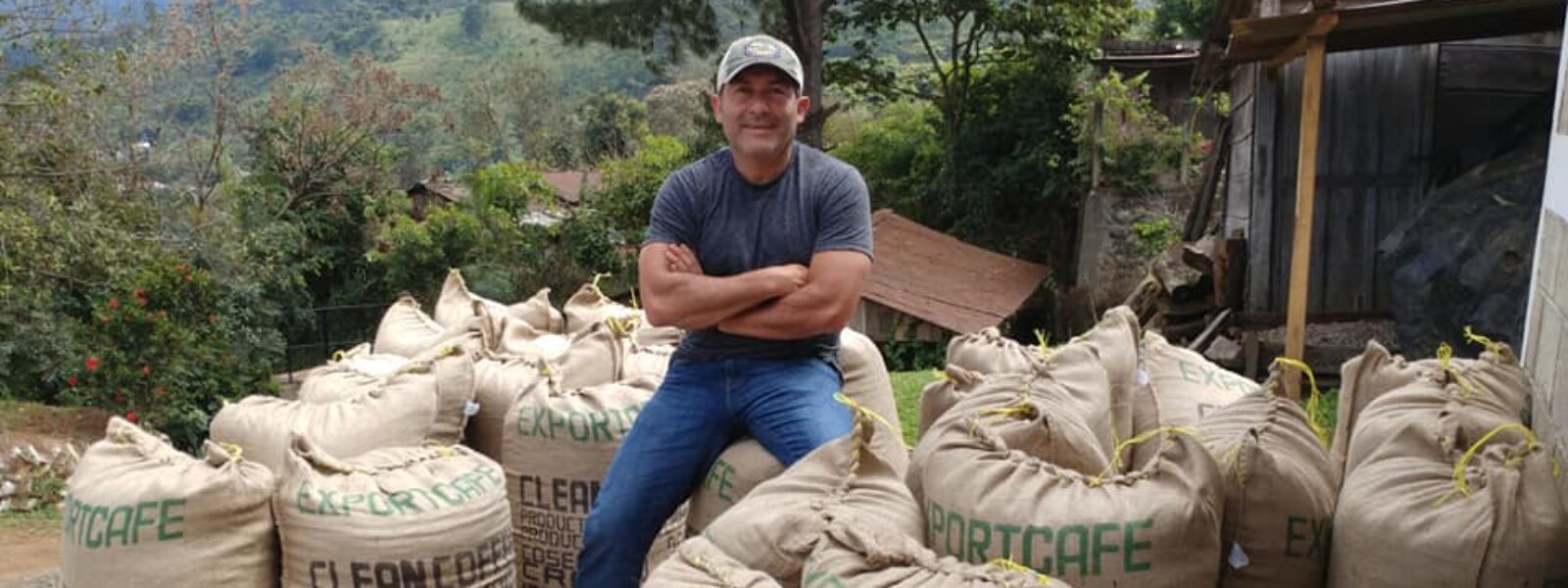Mill City Farmers Market vendor Carlos Palacios, owner of Cafe Palmira, shares the story behind his 4th-generation family coffee farm and the changes and challenges facing the industry.
When the pandemic hit, Carlos Palacios, owner of Cafe Palmira, stayed connected with clients the way he has for the past fourteen years: by serving up hot cups of his French and Vienna roast coffees. Despite the distance inherent in setting aside orders at a designated “order pickup” section of his stall at the Mill City Farmers Market, Carlos felt that connection with his customers grew stronger that year.
“People didn’t stop buying from me. They kept coming back.” He shook his head in appreciation, then took a sip of his coffee on the snowy afternoon we spoke about Cafe Palmira’s beginnings and his hopes for the future.
Carlos is the fourth generation in his family to harvest coffee in the highlands of Huehuetenango, Guatemala. The coffee tradition is engrained in this land; coffee farms dot the hillsides of this area long-known for their shade-grown techniques, which require little to no fertilizers and pesticides, and which Carlos believes gives the beans a more intense flavor. Carlos began helping in his family’s coffee farm as a young teen, working in the fields alongside his grandfather, father, and the farmers, some of whom are the third generation to plant and harvest the coffee beans of Cafe Palmira. From picking the cherries — the common name for the bright red coffee fruit — to removing the pulp, then extracting the beans themselves, Carlos knows the ins and outs of the process.
When he moved to Minneapolis with his wife, in 2003, he didn’t imagine that he would find a way to connect the family coffee farm to his new home. He believed he was leaving it behind for good. Once in Minneapolis, he discovered a community that has a deep respect for local businesses and ethically-sourced products, as well as a love for coffee. He began mapping a route for the family coffee to make its way into the cups of Minnesotans. He had a job at a local company, but in his spare time, he developed a business plan, became informed on the legalities of importing coffee, and began forming relationships with Mill City Farmers Market. For the first three years, he rushed from his day job to the pickup station for the beans, then delivered them to the roaster in St. Louis Park. Carlos wants his clients to experience his coffee freshly roasted, when it’s most aromatic and flavorful.
“I love connecting with people at Cafe Palmira every weekend. I know so many people by name now,” he says.
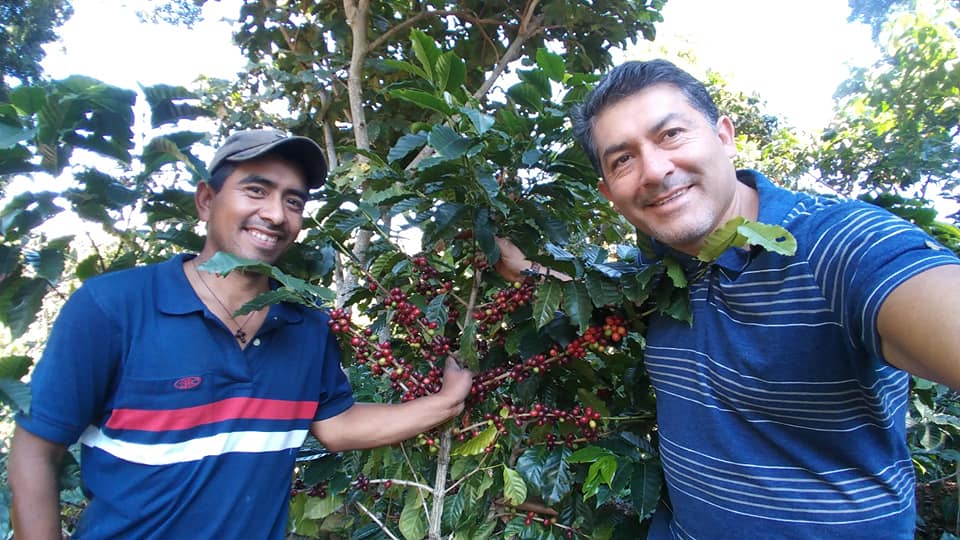 Coffee plant fruiting with red coffee “cherries” at the Cafe Palmira farm ing the highlands of Huehuetenango, Guatemala.
Coffee plant fruiting with red coffee “cherries” at the Cafe Palmira farm ing the highlands of Huehuetenango, Guatemala.
Carlos enjoys walking through the neat rows of shaded coffee plants with his farmers during the picking season, talking with them about their families as they work. Most of the workers live in the nearby village, and sustain their families with the wages earned on the farm. Mayan speakers also farm coffee at Cafe Palmira; they come from their homes in the nearby mountains to work at the farm.
After filling baskets with the cherries, Carlos oversees the process of removing the pulp and extracting the coffee beans. Then, the farmers spread the beans across the spacious lawn in front of the Palacios house, where the sun dries the coffee beans. After checking to make sure the harvest is of the highest quality, the farmers pack the beans, preparing them for the journey in a ship container to the United States. If Carlos isn’t inside the two-story house that blends in with the rolling hills, or speaking with his workers, he’s photographing a coffee-making process that everyone loves, and that is getting more difficult to sustain.
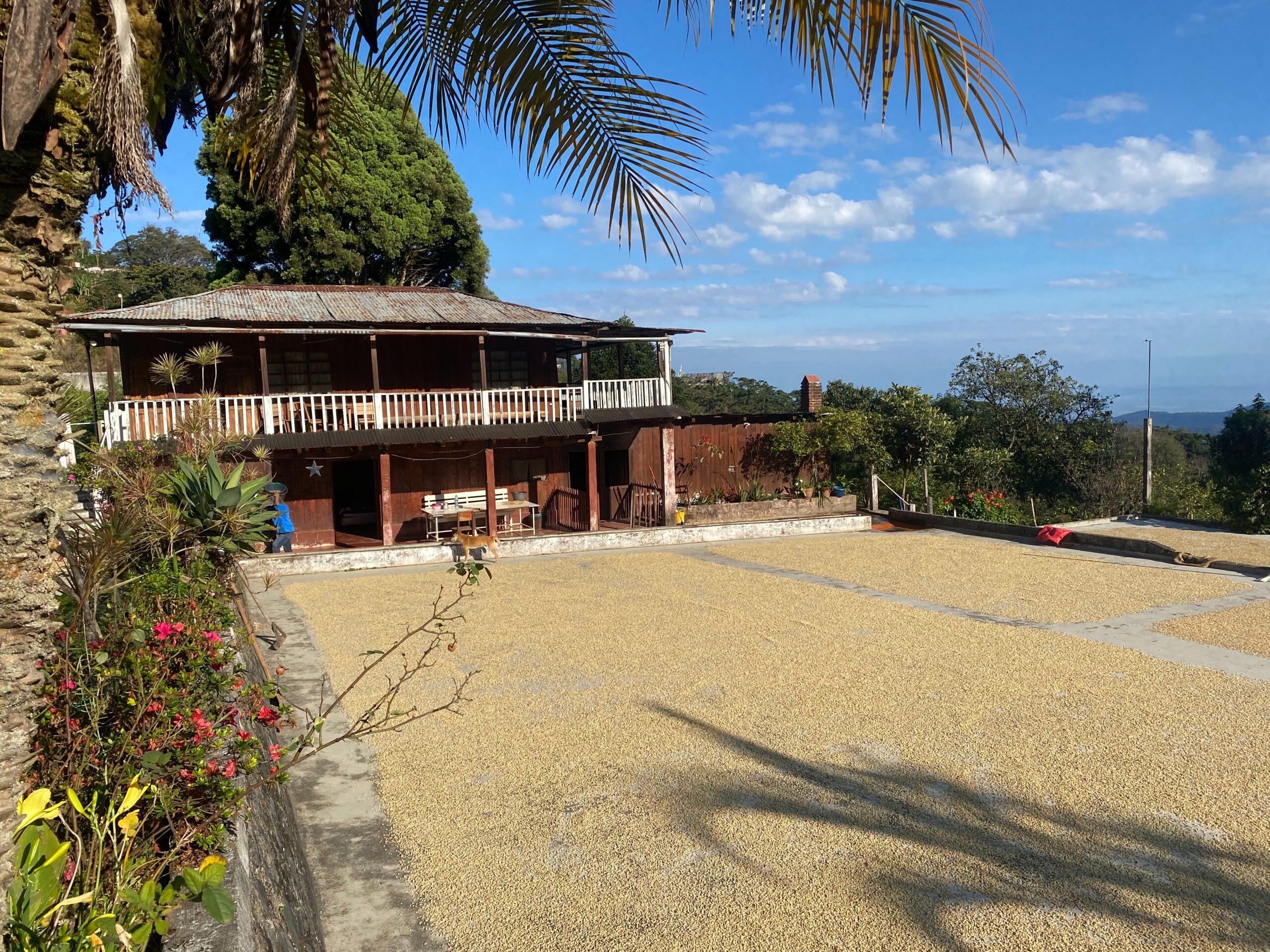 Coffee beans spread across the lawn in front of the Palacios’ house (above). Farmers spreading the coffee beans to be dried by the sun before packing (below).
Coffee beans spread across the lawn in front of the Palacios’ house (above). Farmers spreading the coffee beans to be dried by the sun before packing (below).
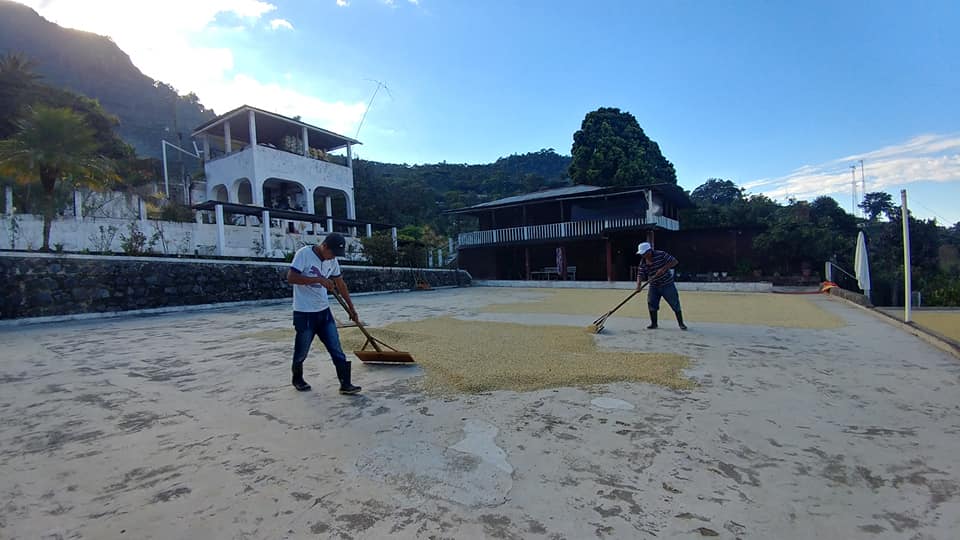
When I asked him what he saw as the biggest challenge to selling coffee, I expected him to talk about pandemic shutdowns. Instead, he responded that worker retention in Guatemala is by far his biggest challenge. In recent years, the country has nearly emptied of farm workers who come instead to the US to plant and harvest crops. American companies provide the visas and dollar wages, which pay for more in Guatemala than the local quetzal. With each passing year, Carlos is finding that it’s more difficult to retain farmers, even the ones whose families have worked for Cafe Palmira for three generations.
He’s trying to get ahead of the problem by staying in close touch with the remaining farmers and deepening his understanding of the twenty-first century coffee farmers’ needs. He believes that the long-term solution to his worker retention problem most likely lies in the increase of coffee sales in the Twin Cities. Carlos hopes to sustain Cafe Palmira by offering more competitive wages to farmers in Guatemala, making the option to stay and work in their native land, where their families live year-round, an easier decision.
Carlos recently returned from a trip to Guatemala, where the latest coffee harvest is now being packed in ship containers bound for New York City. This year, none of the coffee harvested went to waste, though in other years, there haven’t always been enough farmers to move the beans through each stage of the process before they turn rancid. From New York City, this shipment of prime coffee beans will make its way to St. Paul via train, where Carlos will be waiting to pick up the shipment, as he has for the last fourteen years. He transports the beans to his coffee roaster in St. Louis Park, where they produce batches of French and Vienna roast. Carlos prefers the Vienna roast himself; he loves the vibrant flavor and the extra kick of caffeine. He’s noted that Minnesotan coffee drinkers tend to be partial to the French roast, most likely because of its deep flavor with hints of chocolate.
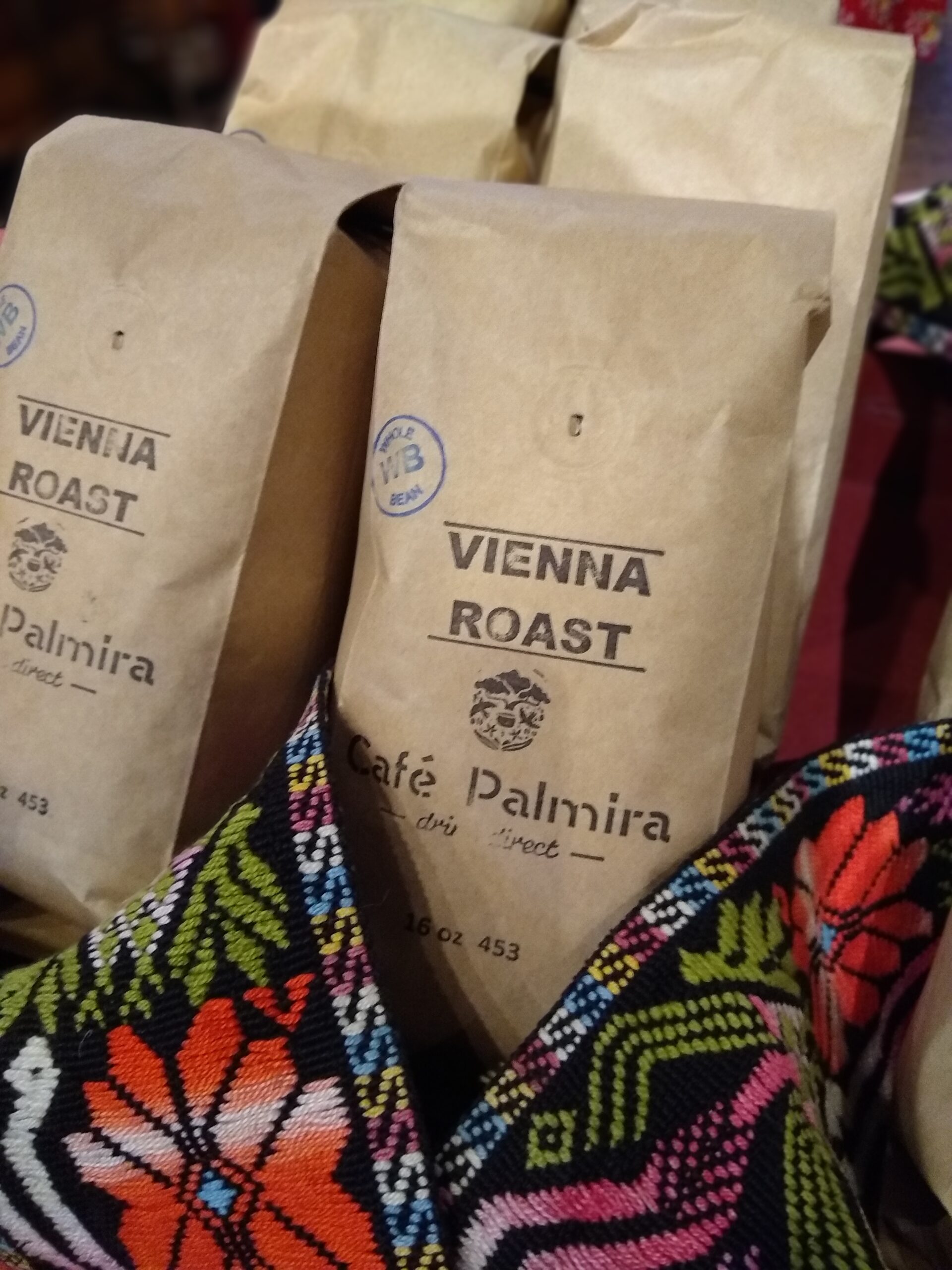
You can find Cafe Palmira at our winter markets in March and April with freshly roasted coffee beans and Carlos will be back outside every Saturday starting May 7th with coffee beans and brewed coffee, ready to greet old and new friends in person.
